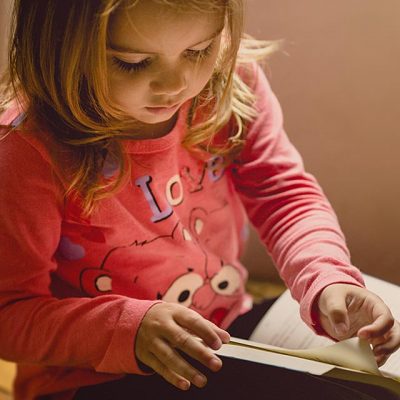These are the ten most frequent questions asked to vision therapy eye doctors.
You may easily find answers to your questions below. If you still have questions, contact your nearest eye doctor experienced in children’s vision and vision therapy.
Q1: My child is having difficulty in school, could he have a vision problem?
A: Up to 80 percent of all learning comes through the visual pathways.
Your vision not only gives you the ability to see near and distant objects, but also consists of 17 visual skills necessary for clear vision in almost any situation. Strong visual skills are crucial for all aspects of learning.
If any problem arises within the visual pathways, it can greatly impact a child’s ability to learn, and affect his overall academic success.
According to the American Optometric Association (AOA) 25 percent of all children have a significant vision problem that impacts their learning.
If your child has a problem with his visual skills, his learning will indeed be affected.
The best way to find out if your child is suffering from a vision problem is to schedule an eye exam for a comprehensive evaluation of his vision and visual skills.
Q2: How do vision problems impact learning?
A: Vision problems can impact all aspects of learning:
- Reading
- Spelling
- Handwriting
- Reading comprehension
- Homework completion
- Classroom performance
- Concentration and attention
- Visual arts
Q3: Why does my child read more slowly than her friends?
A: There are two primary visual skills necessary for reading success:
Saccades is a skill that enables fluid reading. This skill allows your eyes to move smoothly across the line, in coordination.
Without saccades, a child may omit words in a sentence, or make word assumptions that can affect the meaning of the sentence and/or passage.
Visual integration is a skill that allows you to read words accurately, seeing the shape of each letter, and the order of the letters, in a word. Additionally, laterality enables a child to understand that the English language is read from left to right, starting from the top of the page.
Without visual integration, a child may confuse letters such as b and d, or p and q, or confuse words such as ‘saw’ and ‘was’.
If your child is having difficulty reading on the same level as her peers, she may have a vision problem.
Schedule a complete evaluation of your child’s vision and visual skills to identify her strengths and weaknesses. A program of vision therapy will likely be recommended to strengthen her visual skills for improved reading fluency.
Q4: The teacher is complaining that my child’s spelling mistakes are not improving— what can I do to help him?
A: There are two primary visual skills necessary for spelling accuracy:
Pursuits enable your eyes to scan across a word, with smooth binocular movements, in order to read it accurately, sounding out each letter in the word.
Without this visual skill, a child may omit sounds, reading ‘world’ as ‘word’— or make an assumption that the ‘l’ is there, pronouncing the word correctly, even though it was not seen. These omissions and assumptions often lead to spelling mistakes.
Focusing skills allow you to see a word with absolute clarity. Our focusing skills can be likened to the focusing mechanism of a camera. The camera needs to be in focus to capture a clear picture of an image. If a child has poor focusing skills, then he may exert too much effect to keep the word clear that it affects his word memory.
If your child’s spelling mistakes are preventing him from performing well in school, schedule a comprehensive evaluation of his visual skills— he may benefit from a program of vision therapy.
Q5: Why is my child’s handwriting so messy?
A: Legible handwriting is important for taking notes, and completing assignments and exams. Legible handwriting can also have a positive impact on a child’s grades— while messy handwriting can lead to proofreading mistakes, and sometimes even avoidance of writing tasks.
If your child is unable to write legibly, they may have reduced fine visual motor and visual perception skills.
Fine visual motor skills help you to write neatly, with appropriately sized letters. If your child has reduced fine visual motor skills, they may be pressing too hard onto the page when writing, which can lead to muscle fatigue, and strain of the hand or wrist.
Visual perception helps you to visualize letters and words, including its shape and size. This skill triggers a subconscious motor response enabling you to write the letters and words on the paper. Without this skill, the ability to write legibly will be affected.
A combination of these two visual skills is necessary to ensure that the letters are written in sequence, consistently sized, within the lines, and appropriately spaced.
If your child is diagnosed with reduced visual skills, a program of vision therapy can strengthen their visual skills to help them improve their handwriting, and any other difficulties they may have.
If you still have questions, contact your nearest eye doctor experienced in children’s vision and vision therapy.
SEE RELATED: The 17 Key Visual Skills
Q6: My child is having a hard time with reading comprehension and it is impacting his enthusiasm for reading. What can I do to make reading easier for him?
A: Reading comprehension is essential for understanding, processing, and recalling what was read. If your child has difficulty with reading comprehension, it will affect his ability to understand the main ideas and other important information provided in the text.
Your child may also become easily frustrated and lose his enthusiasm for reading because he is not fully grasping the story or text. If your child continues to struggle with reading comprehension, without any means of support, he may end up avoiding reading completely.
If your child is having a difficult time with reading comprehension, he may have a vision problem.
There are two primary visual skills necessary for reading comprehension:
Visual memory allows you to imagine the scene of a story in your mind, seeing all the details that have been laid out for you on the page. Visualization enables increased comprehension of text, and enhances your ability to recall what you have read.
Convergence allows you to focus both of your eyes inward, in order to see a close object clearly, such as a book or computer screen.
Convergence insufficiency is one of the most common visual problems that affects up to 15 percent of all children.
If your child has a vision problem that is affecting his ability to fully grasp what he reads, vision therapy is a highly effective treatment for improving the visual skills needed for reading comprehension.
Q7: Why does it take my child so much time to complete her homework?
A: Homework completion encourages children to work independently, without the teacher’s help, and reinforces what has been taught in class— creating a better understanding of the subject. Homework assignments also improve memory and critical thinking, and therefore test grades as well.
If it is taking your child longer than necessary to complete her homework, or if she complains that she “gives up” or refuses to sit any longer, she may have a problem with her visual skills.
Accommodation endurance helps you to maintain focus for reading and other close vision tasks, for an extended period of time. Many children can focus clearly at the beginning of the day, but fatigue after a few hours— making it difficult for them to focus while trying to complete their homework assignments.
Binocular coordination allows your eyes to move together, in coordination, for clear and comfortable vision. Poor binocular coordination can cause fatigue and avoidance of homework. In some cases poor binocular coordination can result in blurry or even double vision.
To find out if your child is suffering from a vision problem, take this quiz, and schedule a comprehensive evaluation of her vision and visual skills.
A program of vision therapy can train her focusing skills and improve her binocular coordination— thereby improving her ability to complete her homework assignments.
Q8: Why is my child having difficulty concentrating in class?
A: Concentration is necessary for following instructions, completing tests and assignments, and understanding the subject material. Children who find it difficult to concentrate during class are generally seen daydreaming or distracting their classmates.
If your child is struggling to concentrate during class, they may have reduced visual skills required for attention and concentration.
Peripheral vision allows you to see what is going on around you, without turning your head. This skill allows you to attend to a task without being distracted by noises or movement in the environment.
Gross visual motor skills allows you to sit at a desk, with correct upright posture. This skill enables increased concentration during lessons, and while completing assignments.
A child with reduced gross visual motor skills will typically slouch behind their desk, or lean on their hands for support, affecting their ability to concentrate properly.
With a program of vision therapy, your child can improve his concentration skills, enhance his performance in school, and even increase his confidence as a result of his new-found ability to follow directions and attend to a given task.
Q9: What is classroom vision?
A: Classroom vision is the vision we use to see and take notes off the board, follow the teacher’s directions, and process anything else going on in the classroom.
Central vision acuity allows you to see distant images clearly. This skill is essential for all of life’s activities, including the classroom.
Accommodation flexibility allows you to maintain vision clarity while you switch focus from near to distant images. This skill is necessary for taking notes from the board— looking from the board to your book, and then back to the board, in a continual motion.
Q10: I think my child has reduced visual skills. What can I do to help?
A: Strong visual skills are essential for academic success. All of the fundamental components of learning rely on the strength of the visual skills.
LEARN MORE: Vision Therapy for Children
If you think your child may have a vision problem, schedule a comprehensive vision evaluation.
Your eye doctor will be able to detect the presence of a vision problem, and will discuss the benefits of vision therapy. Vision therapy is a highly effective treatment program that involves a series of eye exercises to strengthen the eye-brain connections and improve the visual skills.
It is important to treat vision problems as early as possible to achieve optimal therapy results, and enable your child to reach their full potential.










